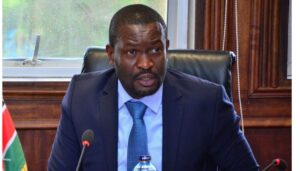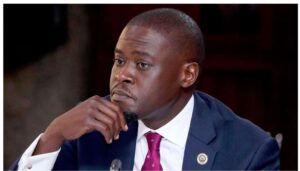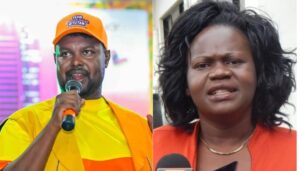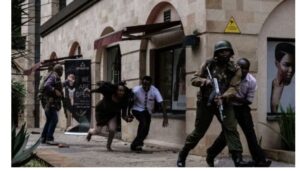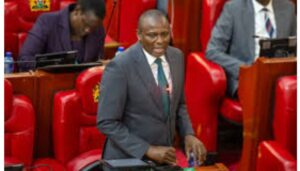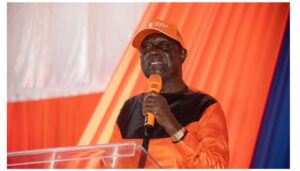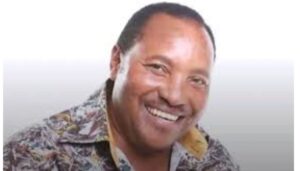ODM holds high-level talks with Putin party in Russia
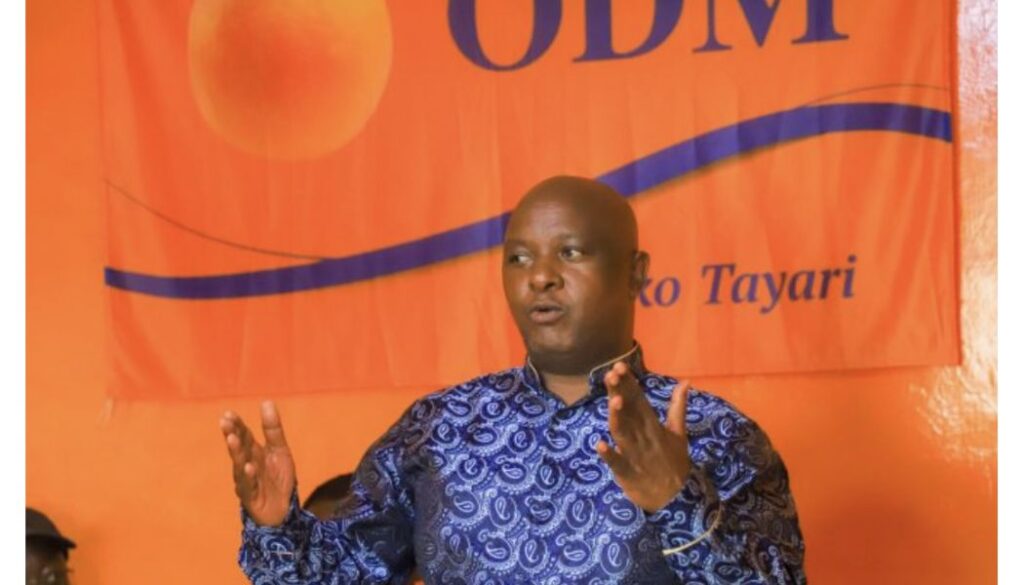
ODM), led by Deputy Party Leader Godfrey Osotsi, met leaders of the United Russia Party, a political outfit linked to President Vladimir Putin, in Moscow, Russia.
A section of party leaders from the Orange Democratic Movement (ODM), led by Deputy Party Leader Godfrey Osotsi, met leaders of the United Russia Party, a political outfit linked to President Vladimir Putin, in Moscow, Russia.
At the meeting on Tuesday, 15 July, the two parties held bilateral talks and consulted on how they could collaborate to promote political party diplomacy.
“Deputy Party Leader Sen. Godfrey Osotsi yesterday led a group of party members of parliament into a consultative meeting with officials of the United Russia Party (URP) at the party headquarters in Moscow, Russia,” read the statement in part.
“During the meeting, they held bilateral talks on cooperation between the two parties and how they can work together in strengthening political party diplomacy,” it added.
Osotsi was joined by Siaya Senator Oburu Odinga (a Trustee of the Party), Rarieda MP Otiende Amollo (ODM National Vice Chairman), and Paul Matuyia, MCA, Kitengela Ward.
The ODM contingent was received by Andrey Klimov, Member of the Supreme Council of the URP and also the Deputy Chairperson of the Federal Council Committee on foreign relations.
In addition to the meeting, the leaders also delivered a message of goodwill from party leader and former Prime Minister Raila Odinga to the leadership of URP.
HELB announces 80% penalty waiver to defaulters who pay in lump sum
Three KDF soldiers killed, 7 injured in Lamu IED explosion
Foreign Embassies issue statement after appointment of IEBC commissioners
Ndindi Nyoro alleges government took secret loan using fuel levy as security
Gloria Orwoba ordered to pay Senate clerk Ksh10.5 million in defamation case
While Putin is not currently the formal leader or a member of United Russia, he is widely considered its de facto leader and the party’s ultimate patron.
United Russia was formed in 2001 through the merger of several pro-Kremlin political blocs, including “Unity,” which was specifically created in 1999 to support the then-new Prime Minister Vladimir Putin.
The party’s rapid rise to dominance in the State Duma (the lower house of the Russian parliament) was directly tied to Putin’s immense personal popularity and his actions, such as his handling of the Chechen conflict.
It effectively became the “party of power,” a vehicle to ensure Kremlin control over the legislative branch and to consolidate political support around the President.
While serving as Prime Minister (2008-2012) during Dmitry Medvedev’s presidency, Putin formally took on the role of chairman of United Russia.
This was a strategic move that allowed him to maintain direct influence over the political system even when not holding the presidency.
When Putin returned to the presidency in 2012, he resigned as party chairman, handing the position to Dmitry Medvedev, who continues to serve in that role.
Despite not being a formal member, Putin frequently addresses the party congresses, guides their agenda, and is publicly supported by the party as its unquestioned leader.
If Parliament was functiong, Ruto wouldn’t be in office – David Maraga
Mediamax announces mass layoff
Kenya among first African countries to roll out HIV prevention injection
ORPP appoints Sophia Sitati as acting Registrar of Political Parties
I have no regrets making difficult decisions for Kenya; President Ruto
Follow us

